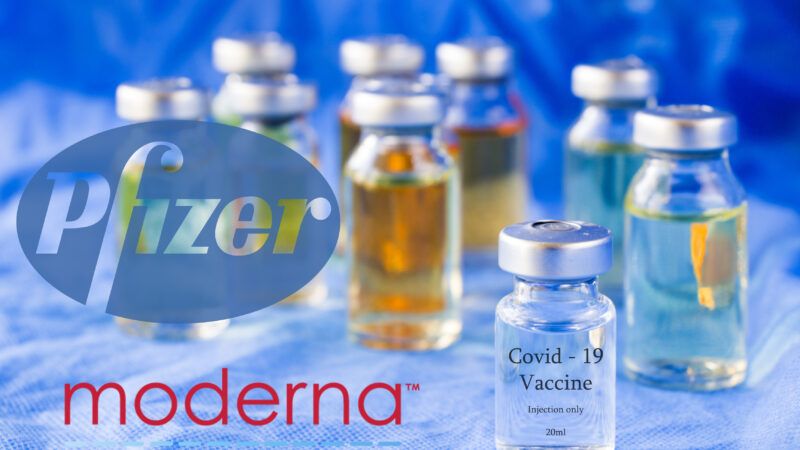Here's How We Could Double the Number of Americans Vaccinated Against COVID-19
According to a new study, one dose of the Pfizer/BioNTech vaccine is nearly as effective as two.

One dose of the Pfizer/BioNTech COVID-19 vaccine is 85 percent effective in preventing symptomatic disease 15 to 28 days after being administered, according to a new study reported in The Lancet. Currently, the Centers for Disease Control and Prevention (CDC) recommends that the U.S. stick to the two-dose regimen with vaccinations occurring 21 days apart, the approach that was tested in clinical trials and approved by the Food and Drug Administration (FDA). That dosing regimen provides 95 percent protection against the virus. The CDC recently advised that waiting up to 42 days between the first and second doses would be OK.
The new study bolsters an analysis by other researchers published in The New England Journal of Medicine (NEJM) that estimated that one shot of the Pfizer/BioNTech vaccine is 92.6 percent effective after two weeks. The same researchers also found that one dose of Moderna's COVID-19 vaccine is 92.1 percent effective after two weeks.
In response to the NEJM analysis, Pfizer researchers noted that alternative dosing regimens have not been evaluated. They added, "The decision to implement alternative dosing regimens resides with health authorities; however, we at Pfizer believe that it is critical for health authorities to conduct surveillance on implemented alternative dosing schedules to ensure that vaccines provide the maximum possible protection."
Of course, the question is whether we should "provide maximum possible protection" for individuals or for populations. Back in December, I asked, "Why use two doses of COVID-19 vaccines when one works almost as well?" I pointed out the fact that we could double the number of Americans vaccinated against COVID-19.
Similarly, in a recent Washington Post op-ed, George Mason University economist Alex Tabarrok asked:
Is it better to give a second dose to one person, boosting them from 80 percent to 95 percent protected, or to give a first dose to someone else, raising them from 0 percent to 80 percent protected? Ethics and efficiency both suggest that it's better to protect two people well than one person maximally. It's also a quicker route to herd immunity, a key part of any vaccine strategy.
In other good news, Pfizer is reporting that its vaccine no longer needs ultra-cold refrigeration and can instead be stored for two weeks at temperatures commonly found in pharmaceutical freezers and refrigerators. This considerably simplifies and speeds the vaccine's wider distribution.
New reports about the efficacy of a one-dose regimen are vindicating the United Kingdom's decision to delay the second dose of these vaccines by 12 weeks so that supplies can be stretched in order to inoculate more people more quickly. Let's hope these new data prod the Biden administration into making a similar decision soon.


Show Comments (94)